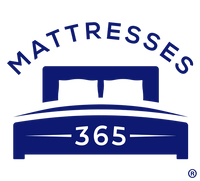The Benefits of Sleep Tracking
19th June 2023
The Benefits of Sleep Tracking
Sleep is a vital component of our overall well-being, and understanding our sleep patterns can have a profound impact on our health. With the advent of technology, sleep tracking has emerged as a valuable tool to gain insights into our sleep quality and habits. In this blog post, we'll explore the benefits of sleep tracking and how it can revolutionise your sleep routine.
What are Sleep Trackers?
Awareness and Understanding
One of the significant benefits of sleep tracking is the valuable awareness and understanding it provides about our sleep patterns. By utilising sleep tracking devices or apps, individuals can gain in-depth insights into various aspects of their sleep, including duration, quality, and sleep stages experienced throughout the night. This data offers a comprehensive overview of how one's sleep routine unfolds, enabling a deeper understanding of individual sleep habits.
Tracking the duration of sleep is a fundamental aspect of sleep tracking. By monitoring the actual time spent asleep, individuals can identify if they are consistently getting enough sleep according to their age, lifestyle, and recommended guidelines. This awareness can lead to adjustments in bedtime routines or daily schedules to prioritise sufficient sleep and its numerous health benefits.
Sleep tracking also allows individuals to gain insight into sleep quality. Metrics such as sleep efficiency, which measures the percentage of time spent asleep compared to the total time spent in bed, can highlight the effectiveness of sleep. It can reveal how often one wakes up during the night, providing insights into potential disruptions or factors affecting sleep continuity. Armed with this information, individuals can pinpoint specific issues and make targeted changes to improve sleep quality.
Moreover, sleep tracking delves into the different sleep stages experienced throughout the night, such as light sleep, deep sleep, and rapid eye movement (REM) sleep. Understanding the distribution and duration of these stages helps individuals comprehend their sleep architecture. For example, if someone consistently experiences limited deep sleep or insufficient REM sleep, they may explore lifestyle adjustments or seek professional advice to address potential sleep disorders or optimise their sleep environment.
With the awareness gained through sleep tracking, individuals can identify potential issues or areas for improvement in their sleep routine. They may notice patterns such as difficulty falling asleep, restless nights, or the impact of certain activities or habits on their sleep quality. Armed with this knowledge, individuals can make informed decisions and take proactive steps to optimise their sleep habits and overall well-being.
Optimised Sleep Schedule
Improved Sleep Quality: Following a consistent sleep schedule helps regulate your body's internal clock, known as the circadian rhythm. When you go to bed and wake up at the same time every day, your body becomes accustomed to a regular sleep routine. This regularity promotes more restful and efficient sleep, allowing you to experience deeper sleep stages and wake up feeling refreshed.
Enhanced Sleep Efficiency: An optimised sleep schedule ensures that you allocate an adequate amount of time for sleep. By setting consistent bedtimes and wake-up times, you can optimise your sleep efficiency—the ratio of time spent asleep to time spent in bed. Maximising sleep efficiency means minimising the time spent lying awake in bed and increasing the overall quality of your sleep.
Increased Sleep Duration: A well-planned sleep schedule prioritises sufficient sleep duration to meet your individual needs. It allows you to allocate the appropriate amount of time for sleep, ensuring you get the recommended 7-9 hours for adults. By consistently meeting your sleep duration requirements, you promote optimal physical and mental functioning during waking hours.
Enhanced Sleep Consistency: By sticking to an optimised sleep schedule, you establish a consistent sleep routine. Consistency is crucial for maintaining a healthy sleep-wake cycle. When your body becomes accustomed to a regular sleep routine, it can anticipate and prepare for sleep at the appropriate times, making it easier to fall asleep and wake up naturally.
Regulation of Circadian Rhythm: The circadian rhythm is influenced by external cues, such as exposure to natural light and darkness. An optimised sleep schedule ensures that you align your sleep-wake cycle with these cues. By exposing yourself to natural light during the day and minimising exposure to bright artificial light at night, you can regulate your circadian rhythm, promoting healthy sleep patterns.
Reduced Sleep Disorders and Disruptions: Following an optimised sleep schedule can help reduce the occurrence of sleep disorders and disruptions. By prioritising consistent and sufficient sleep, you reduce the likelihood of experiencing insomnia, sleep apnea, or other sleep-related issues. Additionally, by creating a sleep-friendly environment and adopting healthy sleep habits, you can minimise disturbances that may disrupt your sleep, such as noise, light, or uncomfortable bedding.
Improved Daytime Functioning: Optimal sleep resulting from an optimised sleep schedule positively impacts your daytime functioning. When you consistently get high-quality sleep, you are likely to experience improved concentration, focus, memory, and cognitive performance. Your mood and emotional well-being also benefit, as quality sleep helps regulate emotions and reduces the risk of mood disorders.
Enhanced Physical Health: Adequate and high-quality sleep is essential for overall physical health. Following an optimised sleep schedule supports immune system function, hormonal balance, and tissue repair. It also reduces the risk of developing chronic conditions such as obesity, diabetes, cardiovascular disease, and hypertension.
Identifying Sleep Disruptions
Sleep trackers use various sensors and algorithms to identify sleep disruptions and provide insights into your sleep patterns. Here are some common methods employed by sleep trackers to detect disruptions:
Movement and Body Position: Many sleep trackers use accelerometers to detect movement and changes in body position during sleep. Excessive movement or frequent shifts in position may indicate restlessness, discomfort, or sleep disturbances like restless leg syndrome or periodic limb movement disorder.
Heart Rate Monitoring: Sleep trackers equipped with heart rate sensors can detect variations in your heart rate throughout the night. Rapid or irregular heart rate patterns may indicate episodes of sleep apnea or other cardiovascular issues that can disrupt sleep.
Breathing Patterns: Some sleep trackers incorporate respiratory rate monitoring or utilize advanced algorithms to estimate breathing patterns during sleep. Changes in breathing patterns, such as pauses or abnormal rhythms, can be indicative of sleep apnea or other breathing disorders.
Sleep Stage Analysis: Sleep trackers with advanced algorithms can analyse your sleep stages by monitoring your movements, heart rate, and other physiological signals. They can differentiate between light sleep, deep sleep, and REM sleep. Disruptions in these sleep stages, such as frequent awakenings or abnormal sleep architecture, may suggest disturbances like insomnia, sleep fragmentation, or sleep disorders.
Sound Detection: Some sleep trackers have built-in microphones or use audio analysis algorithms to detect sounds during sleep. They can identify loud snoring, coughing, or other noises that may disrupt sleep or indicate underlying sleep disorders like sleep apnea.
Environmental Factors: Sleep trackers may also consider environmental factors that can impact sleep quality. They can detect variations in ambient light, temperature, humidity, or noise levels that might affect your sleep.
Personalised Sleep Recommendations
Sleep trackers make personalised sleep recommendations based on the data they collect about your sleep patterns and habits. Here's how sleep trackers typically generate personalised sleep recommendations:
Sleep Data Analysis: Sleep trackers analyse the data they gather about your sleep duration, sleep stages, movement, heart rate, and other relevant metrics. They use algorithms to process this information and extract insights about your sleep patterns and quality.
Identification of Sleep Patterns: Sleep trackers identify patterns in your sleep data, such as consistent bedtimes, wake-up times, or recurring sleep disturbances. They also analyse factors like sleep efficiency, sleep stages, and changes in sleep patterns over time. By recognising these patterns, sleep trackers can provide a clearer understanding of your sleep habits.
Comparison with Sleep Guidelines: Sleep trackers compare your sleep patterns and duration with recommended sleep guidelines. These guidelines typically provide age-specific or general recommendations for the optimal amount of sleep. By comparing your sleep data to these guidelines, sleep trackers can assess whether you are meeting the recommended sleep duration for your age group.
Sleep Hygiene and Routine Suggestions: Based on your sleep data and patterns, sleep trackers may offer personalised recommendations to improve your sleep hygiene and routine. These recommendations can include tips for establishing a consistent sleep schedule, creating a sleep-friendly environment, developing pre-sleep relaxation techniques, or managing stress and anxiety before bed.
Bedtime and Wake-Up Time Optimisation: Sleep trackers can suggest optimal bedtime and wake-up time based on your desired sleep duration and sleep efficiency. By considering the time you need to wake up and the recommended sleep duration, sleep trackers can calculate the ideal bedtime to ensure you get sufficient rest.
Sleep Environment Adjustments: Sleep trackers may provide recommendations to optimise your sleep environment. For example, they might suggest adjusting room temperature, reducing noise or light exposure, or using tools like white noise machines or blackout curtains to create a more conducive sleep environment.
Personalised Insights and Tips: Sleep trackers often provide personalised insights and tips based on your sleep data. These can include suggestions on managing sleep disturbances, improving sleep quality, or identifying potential factors affecting your sleep, such as caffeine intake, exercise timing, or screen time before bed.
Goal Setting and Progress Tracking
Sleeping apps often incorporate goal setting and progress tracking features to help users establish and achieve sleep-related goals. Here's how these features typically work:
Goal Setting: Sleeping apps allow users to set personalized sleep goals based on their individual needs and preferences. These goals can include desired sleep duration, bedtime routine targets, or specific targets for improving sleep quality. Users can usually adjust and customize these goals based on their sleep objectives.
Progress Tracking: Sleeping apps track your progress towards your sleep goals over time. They provide visual representations, such as graphs or charts, that illustrate your sleep patterns and how they align with your set goals. This allows you to easily monitor your progress and identify areas for improvement.
Sleep Insights and Recommendations: Based on the data collected, sleeping apps often provide insights and recommendations to help you optimize your sleep. They may offer suggestions on adjusting your sleep schedule, improving sleep hygiene, creating a conducive sleep environment, or adopting relaxation techniques. These recommendations are typically tailored to your sleep patterns and goals.
Notifications and Reminders: To support your sleep goals, sleeping apps often offer notifications and reminders. They can remind you to establish a consistent bedtime routine, encourage you to wind down before sleep, or notify you of your optimal bedtime based on your desired sleep duration.
Sleep Efficiency Metrics: Some sleeping apps calculate sleep efficiency, which is the percentage of time spent asleep compared to the time spent in bed. Sleep efficiency metrics help you evaluate how well you're utilizing your time in bed and can indicate if adjustments to your sleep routine are necessary.
Achievement Tracking and Rewards: To keep users motivated, sleeping apps may include achievement tracking and rewards systems. They may provide badges, milestones, or virtual rewards as you progress towards your sleep goals. These features can help enhance motivation and engagement in achieving better sleep habits.






Leave a comment